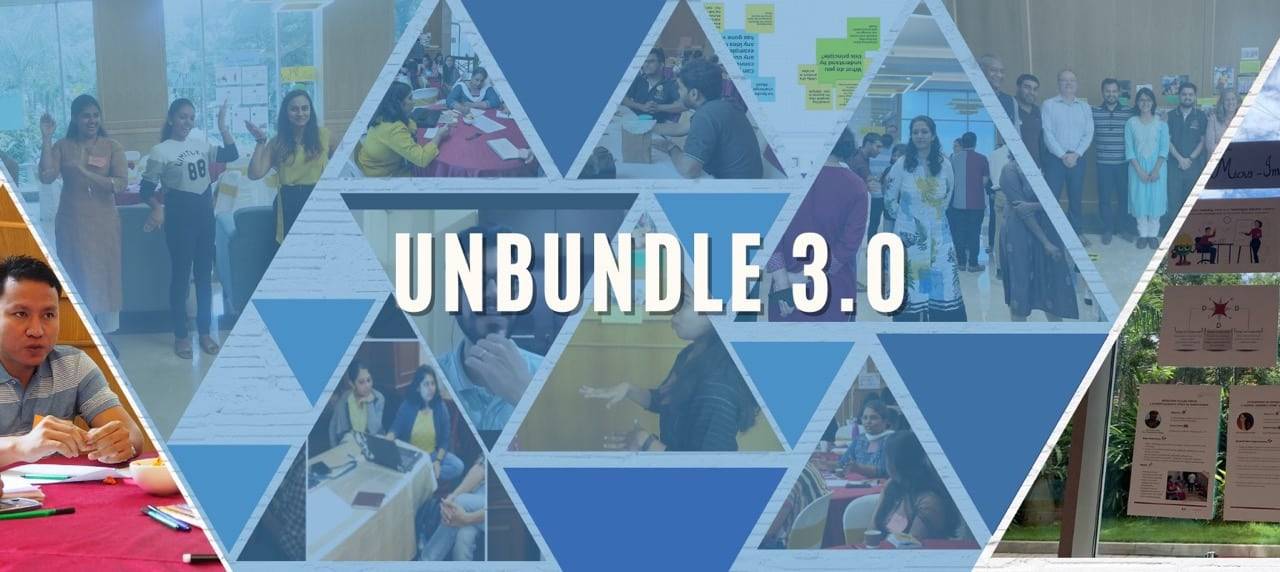Unbundle is a design-thinking cum expert session to unbundle policies related to education and education leadership. After organising virtual Unbundles for about 2 years and a long wait to be able to do this in person, we finally got together with 20+ participanting organisations at Unbundle 3.0. Co-orchestrated with EkStep Foundation, Makkala Jagriti and Mantra4Change, this time we deep dived into the concept of micro-improvements (read the four part series on the approach here).
NCERT is currently orchestrating Vidya Amrit Mahotsav to encourage, recognise and nurture pedagogical innovations by teachers, teacher educators and school leaders. These stakeholders are employing the micro-improvements approach to conceptualise, plan and implement the innovations.
We brought together the different NGOs and institutions as we believe they can benefit from the Mahotsav opportunity by getting their stakeholders – teachers and school leaders – to participate and celebrate their wins.
The aim was to provide the participants (Edumentum, Involve Learning Solutions Foundation, Key Education Foundation, Neev Shikshan Sanstha, Societel Platform, University of Melbourne, Vidya Vidhai Foundation and many others) with an immersive experience of micro-improvements approach – what do micro-improvements look like? Why are they important and relevant for the education ecosystem? How can our stakeholders undertake them?
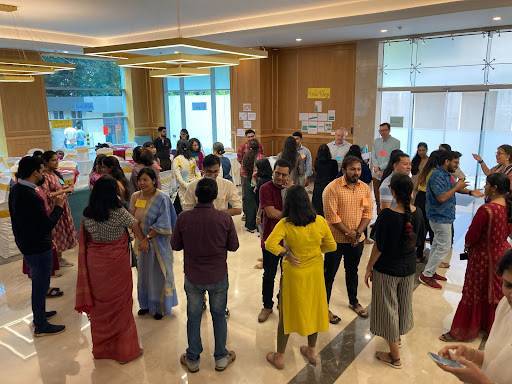
The day began with a fun and meaningful icebreaker – speed bonding where participants were asked to share a recent highlight, their spirit vegetable, thoughts on the Bengaluru weather, a Zoom fiasco and much more.
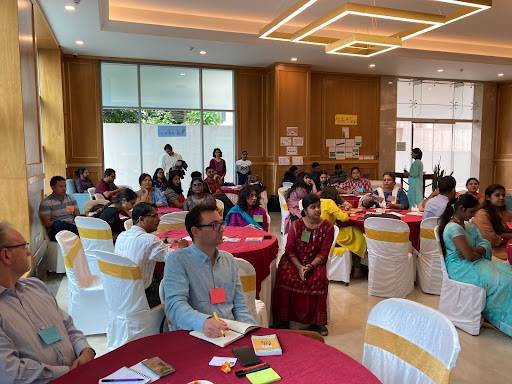
The group then sat down to understand the micro-improvements approach – both the need and an opportunity for the stakeholders to take action! With the effective example of shifts in habits to build personal fitness and good health, the need for micro-steps as the path to achieve larger goals was emphasised.
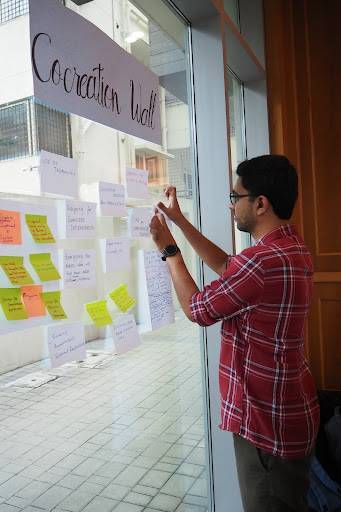

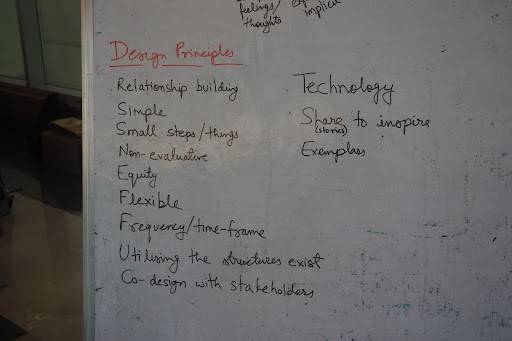
Participant groups shared some of the design principles (short, small, tangible, flexible, meaningful etc.) if they were to design micro-improvements for their stakeholders and used the co-creation wall to display their ideas.
Next was a distinctive visualisation of micro-improvements approach which led to some meaningful and colourful illustrations.
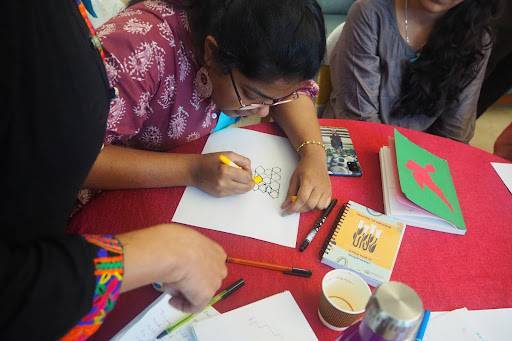



Makkala Jagriti and Mantra4Change then took the lead to present real examples of micro-improvements in Early Childhood Care and Education (ECCE) and School Leadership & Foundational Literacy and Numeracy domains respectively. Sprinkled with stories of their respective stakeholders, it made it clear that micro-improvements are led by the stakeholder, possible, relevant and can be adopted by pretty much everyone. (Read some of their stories and many others here).

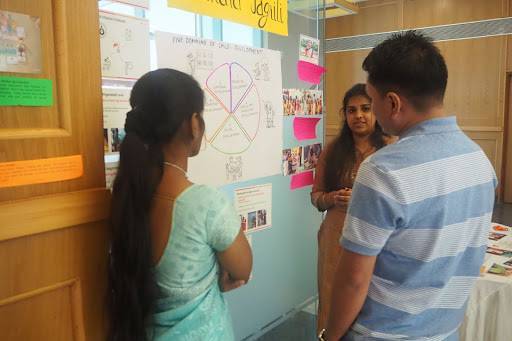
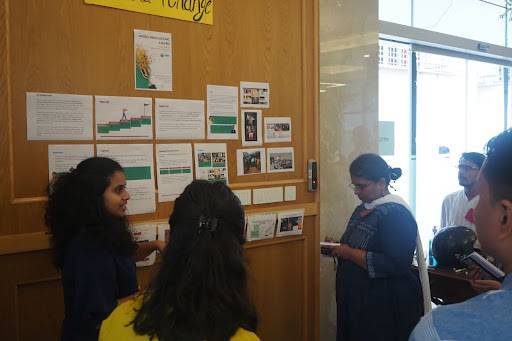

Mantra4Change also presented a program imagination that uses this approach – implemented in Bihar under the Guided Reading Campaign.







In groups, participants created a persona for a chosen stakeholder listing down their roles, responsibilities, pain points and aspirations. This led to micro-improvement projects that the stakeholders can actually design and implement on ground. Many examples of micro-improvement projects for teachers, teacher educators, parents and community members came out!
The day closed with an introduction to Vidya Amrit Initiative launched by the Ministry of Education, India and an invitation to everyone present to join hand to enhance the learning environment in schools across the country.

Here is what the participants had to share about the day with micro-improvements.
In case you want to know more about the micro-improvements approach or provide your stakeholders the same experience over a day’s time and get them to adopt the approach, write to priyanka@shikshalokam.org.
